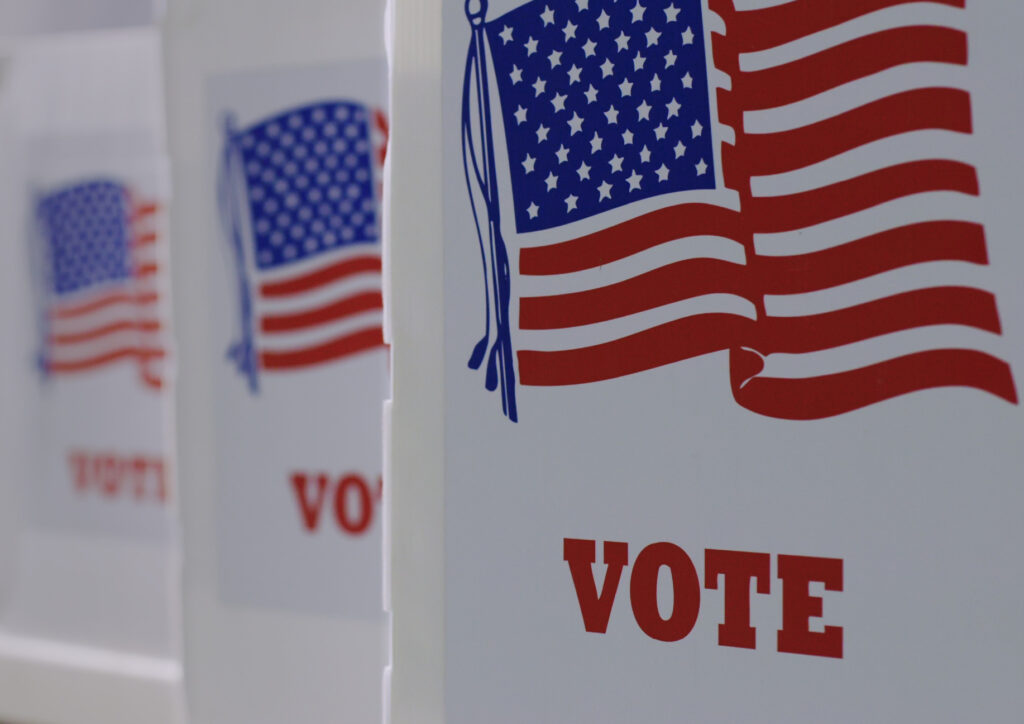Sales taxes are an important revenue source, making up close to half of all state tax revenues.[1] But sales taxes also are inherently regressive because the lower a family’s income, the more the family must spend on goods and services subject to the tax. Lawmakers in many states have enacted “sales tax holidays” (17 states will hold them in 2021) to provide a temporary break on paying the tax on purchases of clothing, school supplies, and other items. These holidays may seem to lessen the regressive impacts of the sales tax, but their benefits are minimal while their downsides are significant—particularly as lawmakers have recently sought to apply the concept in even less targeted and more expensive ways. This policy brief looks at sales tax holidays as a tax reduction device.
How Sales Tax Holidays Work
Sales tax holidays are temporary sales tax exemptions, usually applying to a small number of taxable items for a very limited period. These holidays are typically timed to take place in August during the traditional “back to school” shopping season and offer breaks on school-related items such as clothing, school supplies, and computers. However, a few states exempt all taxable goods during the holiday. Most sales tax holidays last only two or three days, and almost all holidays apply only to items below some specified price (e.g. clothing items priced over $100 are generally not exempted).
In addition to traditional back-to-school weekend holidays, some states now hold longer, broader, or differently themed holidays. Holidays for energy-efficient appliances and storm preparation materials are becoming increasingly common, for example. In 2021, there are also holidays being held for recreation in Florida, hunting season in Mississippi, and small businesses in New Mexico. And three states—Connecticut, New Mexico, and Tennessee—will hold holidays for restaurants, bars, and/or grocery stores. Connecticut and New Mexico allow the establishments to keep the taxes rather than passing the savings to customers, which makes them more akin to a direct business subsidy than a sales tax holiday for consumers.
History of Sales Tax Holidays
The notion of such a holiday was first introduced in 1980 when Ohio and Michigan opted to not tax the sale of automobiles for a period of time.[2] New York experimented with the current concept of sales tax holidays in 1996 but has since abandoned the policy. More than 20 states have enacted legislation at some point to provide holidays, and proposals to extend the concept to more states and more types of purchases continue to appear each year.
Many states either repealed or temporarily suspended sales tax holidays when facing significant revenue gaps. For example, lawmakers in Florida, Georgia, Maryland, Massachusetts, and the District of Columbia all canceled holidays during the height of the Great Recession; and although most of these reinstituted them afterward, Georgia and the District of Columbia’s holidays have not been revived. Louisiana, which once held three separate holidays for back-to-school shopping, hunting season, and hurricane preparedness, started paring them back due to budget woes in 2016 and has now cancelled all three.[3] Holidays in Illinois, New York, North Carolina, Vermont, West Virginia, and Wisconsin were also either short-lived or repealed, though West Virginia’s returned this year.
Lawmakers in 2021 increasingly turned to the tax holiday concept, particularly in states with better than expected revenues after the pandemic-induced downturn of 2020, in some cases proposing holidays with unheard-of scope and duration. Lawmakers in Wisconsin, for example, proposed exempting bars, restaurants, theaters, and music venues for the whole summer. Massachusetts Gov. Charlie Baker has pushed to suspend the sales tax altogether for two months, which would have cost the state $900 million if enacted. And some of these proposals were successful, such as the restaurant holidays in three states mentioned above, a week-long exemption for event admissions and outdoor equipment approved in Florida, and Tennessee’s choice to exempt gun safes and gun safety equipment for the entire year.
Problems with Sales Tax Holidays
Policymakers tout sales tax holidays as a way for families to save money while shopping for “essential” goods. On the surface, this sounds good. However, a two- to three-day sales tax holiday for selected items does nothing to reduce taxes for low- and moderate-income taxpayers during the other 362 days of the year. Sales taxes are inherently regressive. In the long run, sales tax holidays leave a regressive tax system unchanged, and the benefits of these holidays for working families are minimal. Sales tax holidays also fall short because they are poorly targeted, cost revenue, can easily be exploited, and create administrative difficulties.
Sales Tax Holidays Are Poorly Targeted
- Because wealthier taxpayers also benefit from sales tax holidays, they offer less “bang for the buck” from a fairness perspective than more targeted tax breaks such as low-income sales tax credits (described in ITEP Policy Brief, “Options for Progressive Sales Tax Relief”) or Earned Income Tax Credits (described in ITEP Policy Brief, “Rewarding Work Through Earned Income Tax Credits”).
- Wealthier taxpayers are often best positioned to benefit from the holidays since they have more flexibility to shift the timing of their purchases to take advantage of the tax break–an option that isn’t available to families living paycheck to paycheck. Many low-income taxpayers spend most or all of their income just getting by, which means that they also have less disposable income than wealthier taxpayers to spend when the holiday arrives. One recent study found that households that earn more than $30,000 were likely to shift the timing of their clothing purchases to coincide with a sales tax holiday, but households earning less than $30,000 were not.[4]
- Moreover, those same wealthier taxpayers are also most likely to be able to take advantage of the holidays safely during the COVID-19 pandemic by ordering online, arranging curbside pickup, and having items delivered to their homes. Lower-income households, on the other hand, may lack these conveniences and be forced to choose between keeping their families safe or going into a crowded store during peak hours to take advantage of the discount.
- The benefits of sales tax holidays are not limited to state residents but instead extend to anybody who happens to be within the state’s borders at the time of the holidays, including tourists and individuals who live close to the border.
- Though the holidays are often marketed as boons to local businesses, nearly all of these holidays (New Mexico’s “Small Business Saturday” is an exception) apply to online purchases, even those shipped from other states, giving no advantage to locally owned businesses.
Sales Tax Holidays Reduce State and Local Revenue
In 2021, these holidays will cost states and local governments more than $550 million in lost revenue, up from an estimated $300 million just a year ago.[5] Revenue lost through sales tax holidays will ultimately have to be made up somewhere else, either through painful spending cuts or increasing other taxes. And local jurisdictions like cities and counties—which often have few revenue options and have to rely on sales taxes to fund important priorities like roads, parks and police and fire protection—rarely have a choice in the matter of sales tax holidays. Only Alabama, Mississippi, and Missouri allow localities to opt out of the holidays.
Moreover, now that most online sales are subject to state and local sales taxes, the cost of holding these holidays has quickly grown. Online purchases, which are tax-free under all but one of these holidays, are a large and growing share of retail sales, and it is also relatively easy for shoppers to time their online purchases to coincide with a tax holiday.
Lawmakers’ recent experiments with longer and broader holidays add to this growing price tag as well, heightening the need for a better understanding of why sales tax holidays are ineffective and how states can do more with less through more targeted policies.
Some Retailers Exploit Sales Tax Holidays
Retailers can also take advantage of the shift in the timing of consumer purchases by increasing their prices or watering down their sales promotions during the tax holiday. The influx of shoppers gives them economic incentive to do so, and the evidence suggests that they often do.[6] One study of retailers’ behavior during a sales tax holiday in Florida, for example, found that up to 20 percent of the price cut consumers thought they were receiving from the state’s sales tax holiday was actually reclaimed by retailers.[7]
Sales Tax Holidays Create Administrative Difficulties
Sales tax exemptions create administrative difficulties for state and local governments and for retailers who must collect the tax. For example, exempting groceries requires a sheaf of government regulations to police the border between non-taxable groceries and taxable snack food. A temporary exemption for clothing (or for any other back-to-school item) requires retailers and tax administrators to wade through a similar quantity of red tape for an exemption that lasts only a few days. Further complexity can arise in states with local sales taxes when some localities opt not to participate in the holiday and consumers unexpectedly end up paying local sales taxes on their purchases.
Conclusion
Sales tax holidays are poorly targeted and too temporary to meaningfully change the regressive nature of a state’s tax system. Lawmakers must understand that they cannot resolve the unfairness of sales taxes simply by offering a short break from paying these taxes. If the long-term consequence of sales tax holidays is a higher sales tax rate, low-income taxpayers may ultimately be worse off as a result of these policies. Policymakers seeking to achieve greater tax fairness would do better to provide a permanent refundable low-income sales tax credit or Earned Income Tax Credit (EITC) to offset the impact of the sales tax on low- and moderate-income taxpayers.
Appendix: Sales Tax Holidays 2021
[1] U.S. Census Bureau, U.S. Census Bureau, 2020 Annual Survey of State Government Tax Collections.
[2] Janssen, C. B. (2012), (Un) Happy Holidays: The True Meaning of Sales Tax “Holiday” Policy, Loyola Consumer Law Review. 24: 411–440.
[3] Some local jurisdictions in Louisiana still have hunting season exemptions from local sales taxes in place because the repeal of state-level holidays in 2018 did not extend to localities. Louisiana Department of Revenue, Revenue Information Bulletin No. 18-020.
[4] Marwell, Nathan and Leslie McGranahan (2010), The Effect of Sales Tax Holidays on Household Consumption Patterns. Federal Reserve Bank of Chicago.
[5] ITEP survey of cost estimates from state tax expenditure reports, fiscal notes, revenue departments, and academic studies.
[6] Brunori, David (2017), Sales Tax Holiday: Great Politics, Poor Policy. D.C. Policy Center, https://www.dcpolicycenter.org/publications/sales-tax-holidays-great-politics-poor-policy .
[7] Harper, R. K., Hawkins, R. R., Martin, G. S. and Sjolander, R. (2003), Price Effects around a Sales Tax Holiday: An Exploratory Study. Public Budgeting & Finance, 23: 108–113.





